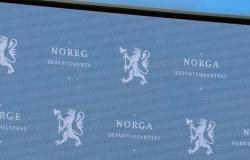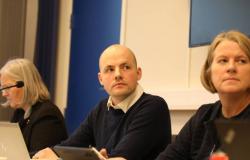The men’s committee will make major changes to prevent alienation among men. One proposal concerns testing a flexible start to school.
Published: 24/04/2024 13:28 | Updated: 24/04/2024 13:46
The short version
- The men’s committee proposes changes to prevent alienation among men.
The summary is created with the help of artificial intelligence (AI) and quality assured by Aftenposten’s journalists.
Short version is for subscribers only
– The experience of falling outside society can ultimately fuel destructive behavior such as crime, substance abuse and violence.
This is what the Men’s Committee writes in its report, which will be published on Wednesday. The report has been named “Equality’s next step” and is 315 pages long, and deals with the role of boys and men in Norwegian society.
The problem above, for example, has previously been seen as classic “boy problems”, according to the committee. Rather, they believe this must be understood as an expression of boys’ and men’s problems, which must be taken seriously and resolved at a societal level.
The committee therefore comes up with a wide range of proposals on how this can be done.
Loses in several areas
The aim when the work started was to investigate boys’ and men’s equality challenges in Norway. The committee, headed by Claus Moxnes Jervell Claus Moxnes JervellClaus Moxnes Jervell is currently professional secretary in the Swedish Confederation of Trade Unions.is broadly composed of people from, among other things, sports, the trade unions and academic circles.
The men’s committee was appointed on the grounds that boys and men have not been well enough included and taken care of in the design of the equality policy and in the public debate.
– We believe that including boys’ and men’s challenges to a greater extent than today is the next step towards equality, Jervell said at the presentation.
The committee writes that men are weaker than women in several areas.
- Education
- In matters of care for own children
- In the face of public services.
This can spread and, for example, show itself in the form of unemployment and social isolation. It also has clear purely psychological effects.
– The subjective outsiderness can be an experience of lack of recognition and inclusion, the feeling of not being useful and of being powerless in society, the report states.
Men are also different
A problem in previous research in the field of equality is that other groups have been held up against and compared to the average man. Thus, the range in Norwegian men has disappeared, according to the committee.
They are now trying to change this understanding.
Among other things, they see that social inequality hits men harder than women. Several subgroups of men also have significant additional challenges: Men with functional impairments, Sami men, men in religious minorities and queer men are mentioned.
Gay and bisexual men, for example, have poorer mental health and significantly more frequent suicidal thoughts than heterosexual men. Sami men experience more violence growing up. Men with a visible immigrant background are exposed to discrimination in working life.
The committee is nevertheless clear that many men are comfortable in established male roles, but:
– We know that some men do not feel at home in such communities. Increased acceptance of a greater diversity of gender and sexuality, and for men to challenge or break with the framework for the male role, in the view of the Men’s Committee, contributes to greater freedom of choice for everyone.
Solutions?
The Men’s Committee recommends 35 measures in four areas: Care for own children, education and working life, health and finally: equality policy.
First, they will change men’s role as caregivers for their own children. They will do this, among other things, by strengthening the courts’ ability to award shared residence.
When it comes to education and working life, the committee comes up with, among other things, a proposal for a flexible start to school and changing the point systems for admission to higher education.
In the field of health, among other things, they want to investigate the possibility of regular examinations for prostate cancer as well as manage the work to prevent suicide.
Tags: Mens Committee proposes measures improve mens equality
-





